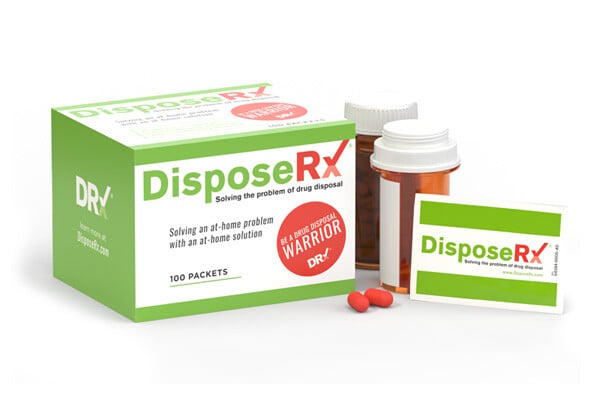
Let's Be Clear:Understanding Opioids Starts with the Facts
- Understanding Substances
- Opioids
Test your knowledge with our interactive quiz to see how much you really know about these powerful substances.
What are the Risks?
It’s good to be clear about substance use — about safety, support and getting help. Knowing the dangers of opioid misuse, especially for teens and young adults, can prevent accidental overdose, development of a substance use disorder and even death.
Opioid misuse can start before you may realize it. Anyone prescribed opioids can be at risk of unintentional overdose or develop an opioid use disorder. Other risks include:
- Long-term health problems
- Paralysis
- Coma
- Death
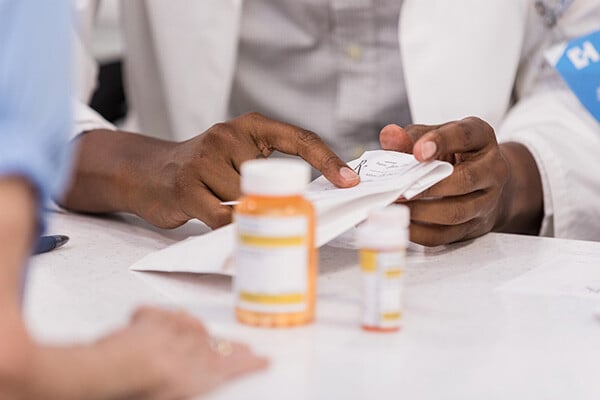
What Are the Side Effects?
Even when taken as directed, prescription opioids can cause side effects. Talk with your doctor about the potential risks and determine the best course of treatment for you. Side effects can include:
- Increased sensitivity to pain
- Nausea & vomiting
- Constipation
- Sleepiness & dizziness
- Dry mouth, itching & sweating
- Confusion
- Low energy & depression
- Low levels of testosterone
Opioid Misuse
Misusing opioids means taking them in a way that’s not prescribed, which can quickly lead to dangerous consequences. Misuse includes:
- Taking higher doses than prescribed
- Using someone else’s prescription
- Taking the drug for the euphoria rather than for pain management
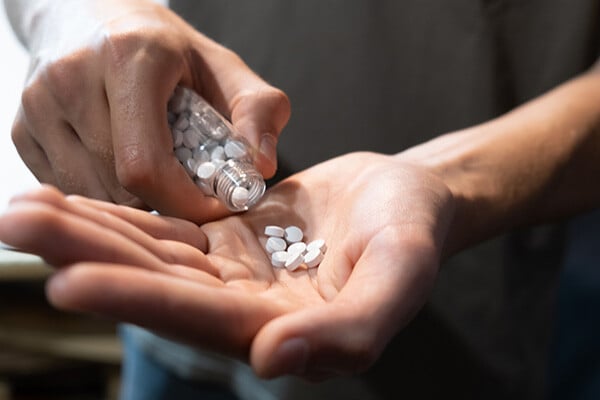
Types of Opioids
There are many kinds of opioids out there, but these are the names you should know.
Prescription Opioids
Medications like oxycodone, hydrocodone and morphine are most commonly prescribed for pain relief.
Fentanyl
A synthetic opioid up to 100 times more potent than morphine and is often found in illegal street drugs. However, there are safe and legal ways to use fentanyl when it’s prescribed and monitored by a healthcare professional.
Meth & Stimulants
Stimulants are a class of drugs that speed up the body’s systems and may be prescribed by a healthcare professional for diagnosed conditions like ADHD or narcolepsy.
Opioid Overdose
Knowing how to recognize and respond to an opioid overdose can save lives. Signs of an overdose include:
- Small, pinpoint pupils
- Limp body
- Unable to stay awake
- Loss of consciousness
- Slow or shallow breathing
- Choking sounds or gurgling noises
- Pale, blue or cold skin
- Fingernails or lips turning blue, purple, grey
- No response when you call the person’s name
Opioid overdoses can be reversed. Naloxone is a non-addictive, life-saving drug that can temporarily reverse the effects of an opioid overdose until help arrives. It’s safe to use and won’t cause harm if given to someone who isn’t experiencing an overdose, so there’s no need to hesitate in an emergency.
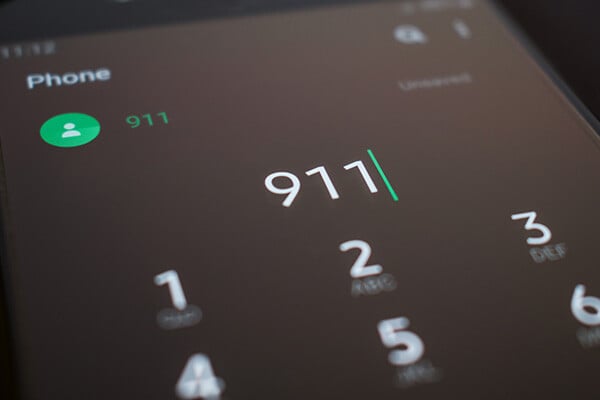
What to Do:
1. Call 911 Immediately
2. Follow Dispatch Instructions
3. Administer Naloxone
4. Try to Keep the Person Awake and Breathing
5. Lay the Person on Their Side to Prevent Choking
6. Stay with the Person Until Emergency Assistance Arrives
*South Dakota law protects a person who is overdosing and the person who called for help from legal trouble.
Let’s Be Clear:
An Opioid Overdose Can Be Reversed by Using Naloxone
It’s safe to use and won’t cause harm if given to someone who isn’t experiencing an overdose, so there’s no need to hesitate in an emergency.
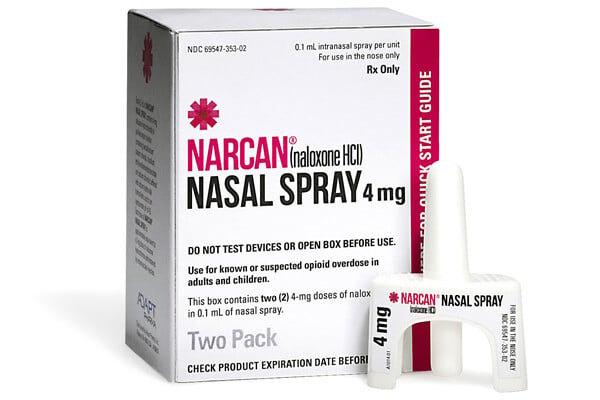
Naloxone
Naloxone is a non-addictive, life-saving medication that can temporarily reverse the effects of an opioid overdose until you can get help.
Administering Naloxone (Narcan Nasal Spray) does not require medical training but is not a substitute for medical care. If you suspect an overdose, call 911.
If you have prescription opioids like fentanyl, hydrocodone, morphine, or codeine in your home, ask your provider or pharmacist for Naloxone—you could save a life.
Safe Storage & Disposal
Proper storage and disposal of opioids prevents misuse and protects your family:
- Store opioids in a secure place out of reach of children, pets and others.
- Dispose of unused opioids at designated drop-off locations or take-back events.
- Keep DisposeRx packets on hand for safe disposal.
For more information on disposal options, learn more about Safe Storage & Disposal practices.
